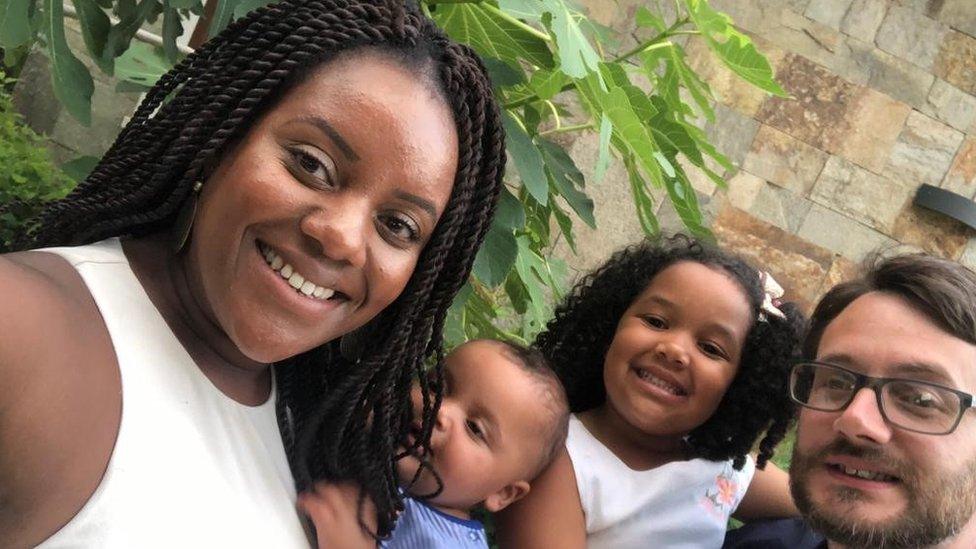Baby loss: 'We weren't told why our daughter had died'
- Published
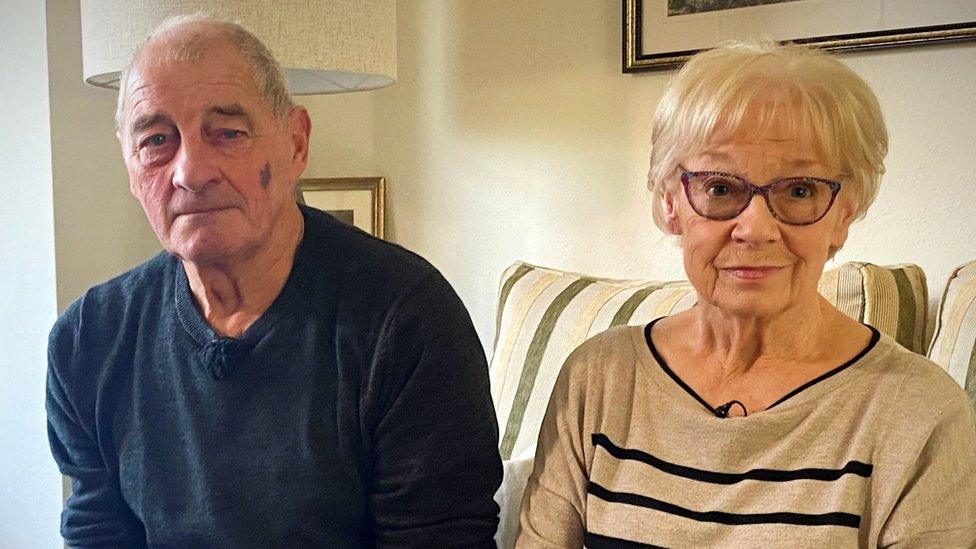
Norman and Joy Cummings spoke to a charity about their grief decades after losing their baby
Two couples from West Lothian have spoken to the BBC about their experiences of losing a baby.
One couple were bereaved earlier this year - the other in 1971, when there was virtually no support with the grieving process.
The help available now, they agree, makes all the difference in acknowledging their babies were once here.

To this day, Joy and Norman Cummings do not know why their baby girl died in August 1971.
Joy, 77, said she was aware the child had been very unwell during the birth - but only later found out she had lived for six hours.
"The doctors came in, they told us [about the death] and that was all," Joy said. "You got no more information. Nobody came to see you or talk about it."
Norman, 78, added: "I got the chance to look through a glass into intensive care and it was just a baby lying with oxygen and tubes. They said she only had a few hours to live.
"That was all I got to see - four or five minutes at the most."
At the time, Norman said his wife had been left alone much of the time immediately after the loss.
He, meanwhile, had to arrange the child's funeral - which Joy could not attend as she was recovering in hospital.
Joy said: "We never talked about what would be done. Now they have somebody that helps you arrange these things. That would have been nice.
"You didn't know what to do really, you just knew you were going home and there would be no baby."
'You just lock it away'
The lack of acknowledgment that their child had lived continued when speaking to loved ones.
They named their baby Pauline, but quickly found there were few opportunities to speak the word aloud due to discomfort around the subject of loss.
"You just lock it away," Joy said. "You met people and you tried to avoid speaking about what had happened. People didn't [talk about it] because I think they thought they were hurting you."
"I suppose it's been held inside us for years," Norman added. "It was more or less get back to work, make a living and get on with it."
For years, Norman felt the experience of losing a child was one big blur. But he said he feels pieces of the experience coming back after speaking to Held In Our Hearts - a local charity that provides baby loss counselling and peer support.
He is unsure whether talking about Pauline after 50 years has been beneficial. It has been painful, like "opening an old wound", he said.
But he added: "I suppose if we had got help or it had been discussed a long time ago, it might have helped."
'We got to make memories with our baby'
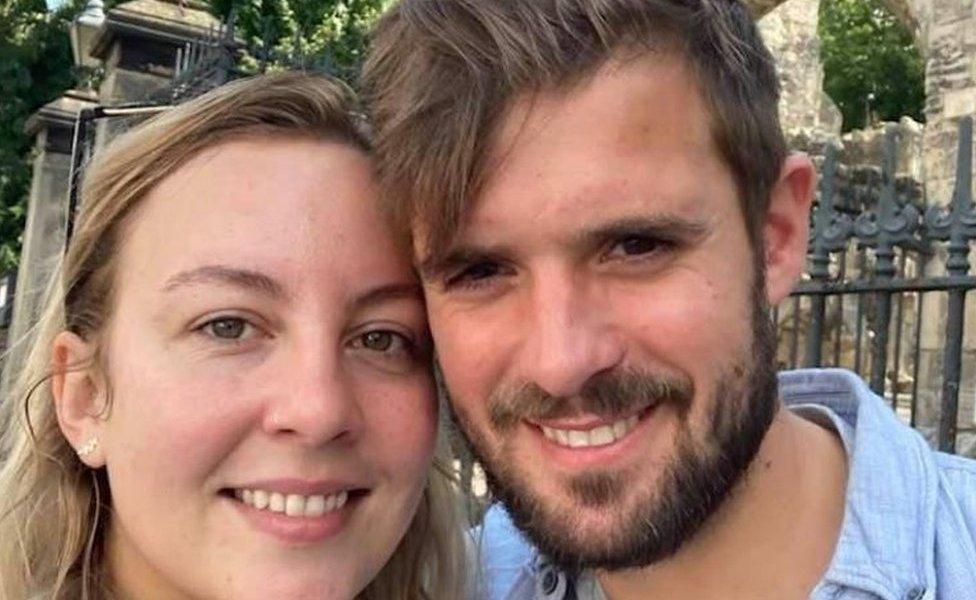
Laura and Jonny Hain lost their baby girl Ivy on 10 May this year
On 10 May this year, after 30 hours of labour, Laura Hain said she was given the worst news a parent could receive.
Her daughter Ivy no longer had a heartbeat and she would be delivered stillborn by C-section.
The 33-year-old had carried the baby to full term and thought it had been a perfect pregnancy.
Quietly, staff at St John's Hospital in Livingston put the couple in touch with the Held In Our Hearts charity.
It was a small gesture, but one that helped the couple make choices and preserve memories during the most difficult time of their lives.
"We got to spend a week with her in a cuddle cot," said Laura. "It's cooled down so you can spend longer with your baby."
Jonny, 33, added: "It was the longest week of our lives - but we wouldn't change it, it was so special."
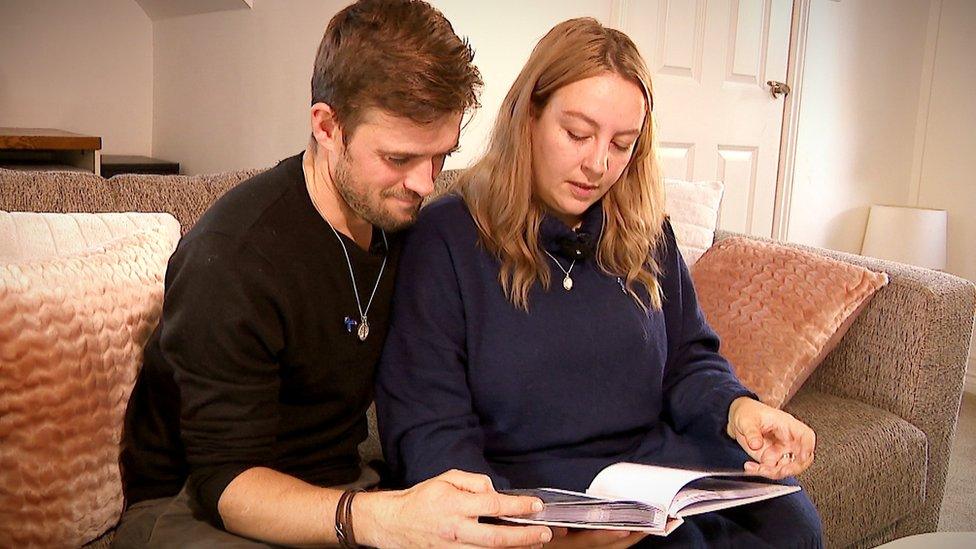
A new support service helped Jonny and Laura preserve memories of their baby - including taking photos
The couple were among the first parents to receive the charity's new Hospital to Home service - a model of support that reaches out to families at the time of bereavement, rather than waiting for parents to ask for help.
It linked Laura and Jonny with a support worker, who not only met Ivy and held her, but visited the couple at home after they said goodbye to their daughter.
"She gave us advice on things we could do to make the most of our time, like read her stories, write a diary and take as many pictures as we could," Laura said.
"It just tries to get you out into the world again. It's so easy to close the doors and curtains. But the help we've had since day one has allowed us to try and function without Ivy.
"I don't know where we'd be without it."

If you are affected by issues raised in this article help and support is available via the BBC Action Line.
If you or someone you know needs support for issues relating to bereavement and emotional distress, these organisations may be also able to help.

'We need to see loss as a life crisis'
Nicola Welsh, chief executive of Held In Our Hearts, told BBC Scotland the health service had come a long way from Joy and Norman's experience.
However, she said there was still a gap between the "fantastic" support offered in hospital and the isolation of life after loss.
She said: "To this day, families return home to an empty nursery and a leaflet or a mention of a charity in their area.
"But the system doesn't actively engage by stepping in at that time.
"I just think we need to see it differently - perhaps if we saw this as a crisis in someone's life rather than something sad that's happened we might act quicker."
Related topics
- Published18 June 2022
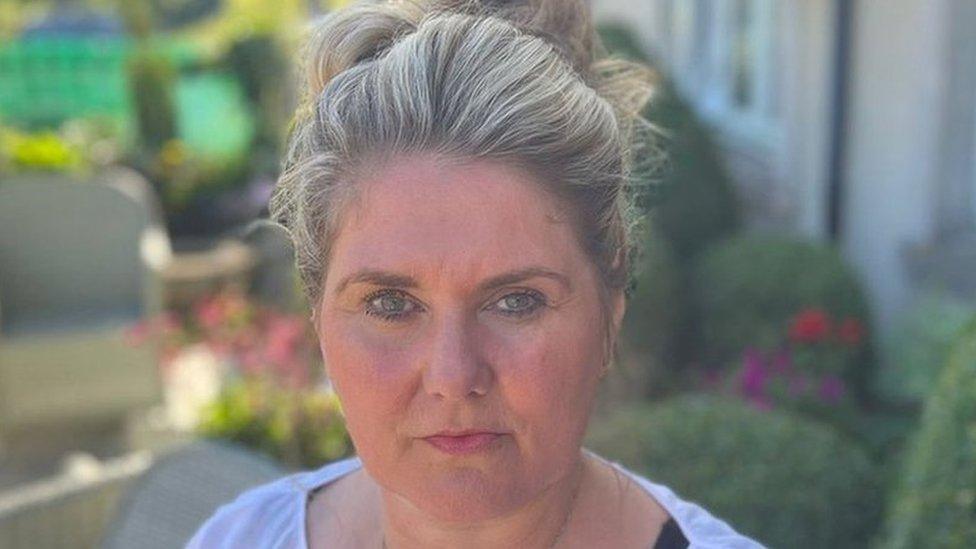
- Published10 October 2022
